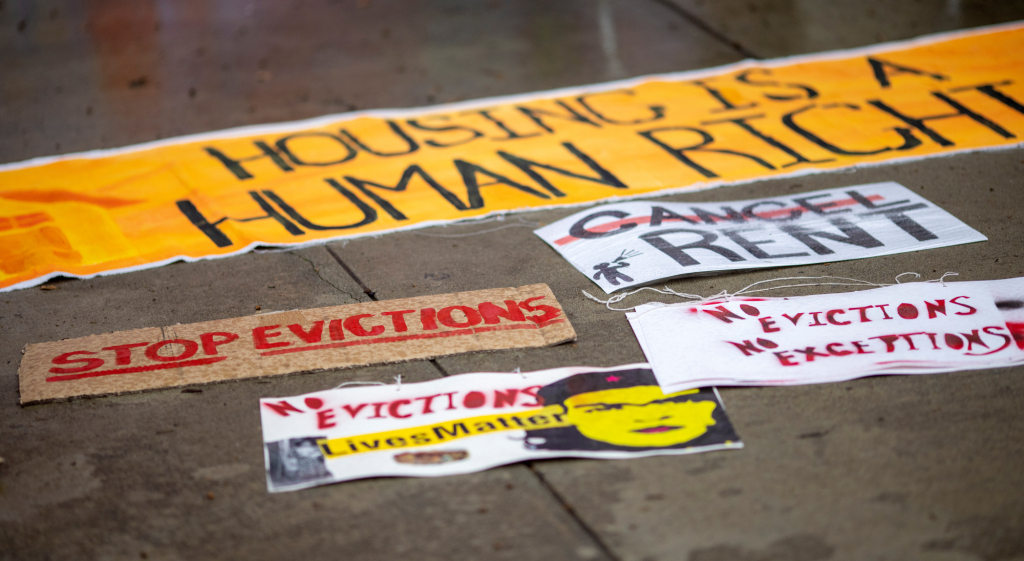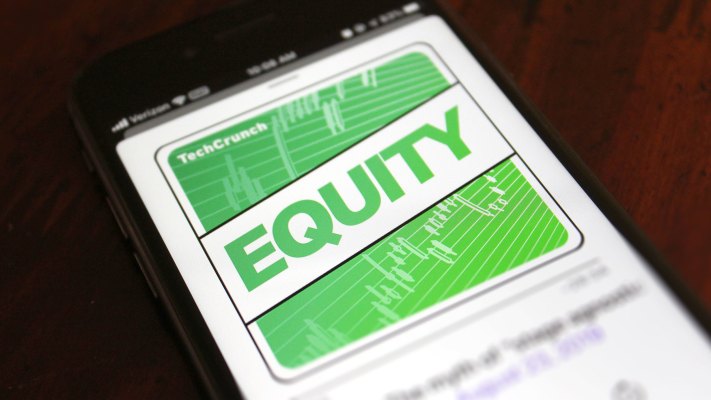A major California landlord association is suing the state to halt its long-running eviction moratorium, the latest sign of unrest as property owners and tenants grapple with unpaid rental debt continuing to mount during the COVID-19 pandemic.
The California Rental Housing Association is seeking an immediate halt to the ban, claiming in a federal suit that the state is illegally interfering with its business and preventing landlords from taking action against tenants abusing the protections.
“Rental housing providers continue to provide housing, and in some cases, for no compensation, which leaves us with no recourse,” said Christine Kevane LaMarca, president of the association representing 19,000 landlords. “Small and medium rental housing providers rely on rental income to pay their mortgages and maintenance expenses while supporting their own families.”
Tenant advocates say the moratorium has prevented a wave of evictions and housing insecurity, slowing an even wider public health crisis. The ban is scheduled to end Sept. 30.
“It’s a bit surprising they’re fighting it so hard,” said Andrés Ramos, legislative council for Public Advocates, noting that landlords are in line to receive full reimbursement for back rent from a $5.2 billion federal aid fund.
Nationally, landlords and property managers are growing increasingly hostile toward the eviction moratoriums, challenging the legality of the extension of a federal ban through Oct. 3. California’s tenant protections are among the strongest in the U.S. and take precedence over the federal measures.
The suit, filed in U.S. District Court in Southern California, marks the latest challenge to Gov. Gavin Newsom and state lawmakers’ response to growing renter debt in the face of COVID-19 job losses and economic disruptions. Newsom enacted the moratorium in March 2020, and lawmakers have extended it three times over the protests of property owner groups. Other federal lawsuits filed against the state have failed to roll back the protections.
The moratorium broadly prevents property owners from removing tenants for unpaid rent during the pandemic. Renters must affirm they lost income or fell ill to the virus and pay at least one-quarter of the back debt to qualify for protections. Tenants can still be removed for certain health and safety measures or if a property owner has decided to take a unit off the market.
The suit says landlords “have been severely burdened financially and emotionally by a seemingly never-ending eviction moratorium” and seeks to have the ban struck down as unconstitutional.
“Many rental housing owners,” the suit says, “will never recover the unpaid rents that have accumulated during the moratorium.” It cites multiple examples of wealthy tenants in California not paying rent and says landlords should have the right to evict them.
“The state continues to extend the eviction moratorium with no distinction between residents who cannot afford to pay due to the pandemic and residents who can afford to pay their rent but are using the moratorium to violate their rental agreements,” LaMarca said.
The growing antagonism comes as the state and localities struggle to distribute $5.2 billion in federal rent subsidies and another $2 billion in state aid for unpaid utility bills. The state website, Housing is Key, has been revamped since it launched in March, but tenants and landlords still say the applications are complicated and the relief slow to arrive.
The state has received $1 billion in requests from 90,000 completed applications and has distributed $243 million so far. The figures do not include aid given out by large cities like San Jose, Oakland, San Francisco and Fremont that have established their own programs aimed at the poorest residents.










